India: an arbitration hub?
India’s goal of establishing arbitration centres for BRICS nations will not be possible without a holistic assessment of its arbitration policy.
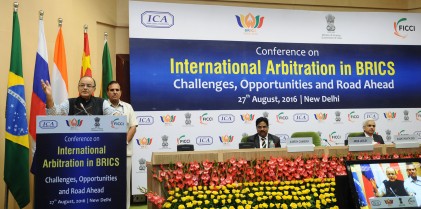 Courtesy: IBG News
Courtesy: IBG News
India’s goal of establishing arbitration centres for BRICS nations will not be possible without a holistic assessment of its arbitration policy.
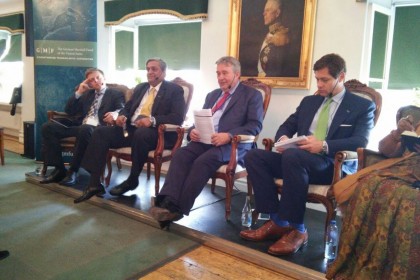 Courtesy: Gateway House
Courtesy: Gateway House
The 11th India Trilateral Forum, a meeting series between India, Europe and the U.S., reflects a more confident India from whom expectations – especially to counter China – are high. This will require a realistic re-labelling of India by the Western powers.
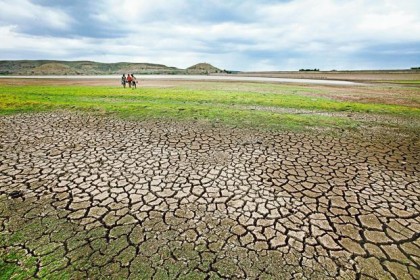 Courtesy: Hindustan Times
Courtesy: Hindustan Times
In a paper submitted to the Degrowth Conference, Budapest, held from August 30 - September 3, 2016, Rajni Bakshi argued that there is much to learn from India's traditional water systems in preparation for the oncoming global water scarcity crisis.
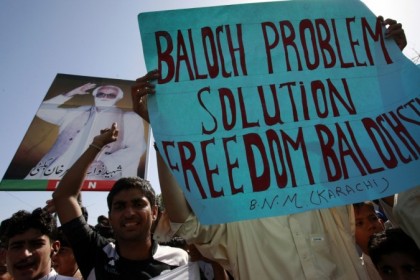 Courtesy: The Wire
Courtesy: The Wire
Prime Minister Modi’s reference to Balochistan in his Independence Day speech, which coincided with the Kashmir unrest, sparked speculations of this being smartly retaliatory. But the province’s geo-strategic complexities mean that New Delhi will have to play the ‘human rights’ card carefully.
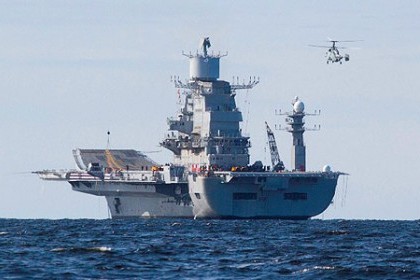 Courtesy: Wiki
Courtesy: Wiki
In the last few years, India has stepped up its engagement with the countries of the Indian Ocean. At the first Indian Ocean Conference held last week, a consensus emerged that New Delhi needed to redouble their efforts to foster political, security, economic, and cultural cooperation in the region.
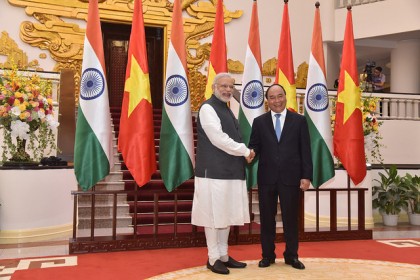 Courtesy: Ministry of External Affairs/Flickr
Courtesy: Ministry of External Affairs/Flickr
Prime Minister Narendra Modi’s recent trip to Vietnam had both heads of state announcing an upgrade of their ‘Strategic Partnership’ into a ‘Comprehensive Strategic Partnership’. This added term captures the importance both sides have vested in the need to deepen the relationship and the prospect for future cooperation.
 Courtesy: Wikipedia
Courtesy: Wikipedia
India's policy towards the Indian Ocean has begun to take a clear, coherent form with the signing of the Logistics Exchange Memorandum of Agreement with the United States, an important bilateral visit to Vietnam by Prime Minister Modi, and an ambitious future being laid out by Foreign Secretary Jaishankar
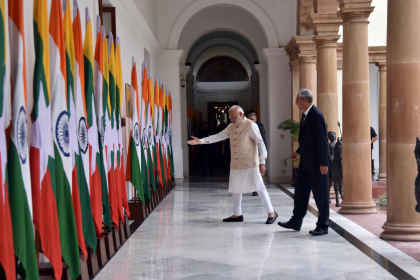 Courtesy: Ministry of External Affairs / Flickr
Courtesy: Ministry of External Affairs / Flickr
The visit of the Myanmar president was a landmark visit, the first in five decades. It raises the fundamental question as to whether the visit will bring forth major strategic and economic gains in the India-Myanmar relationship.
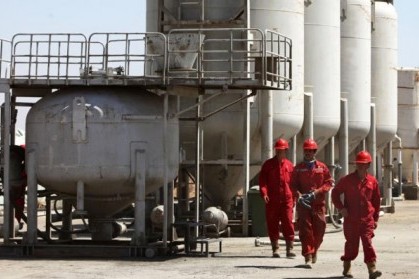 Courtesy: Yahoo
Courtesy: Yahoo
The sheen is coming off China’s state-owned oil companies, which have been hit by the country’s political churning and by their own excesses of buying assets at the peak of the cycle. Now with oil prices low, India has the chance to make well-priced acquisitions without Chinese competition.
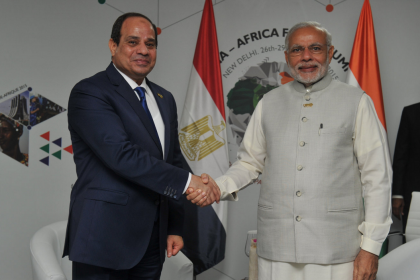 Courtesy: Ministry of External Affairs / Flickr
Courtesy: Ministry of External Affairs / Flickr
Egyptian president, Abdul al-Fattah al-Sisi, is set to arrive in New Delhi on 1 September 2016 with a delegation of important ministers and business leaders. This marks an important opportunity for the two countries to connect on a much wider range of regional and international issues than earlier.